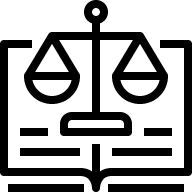Smart Steps To Take If Your Medical Bill Goes Into Collections
By the time a collection agency contacts you about an overdue medical bill, you might have forgotten about the debt or perhaps even hoped the healthcare provider had overlooked the unpaid account. Unfortunately, financial issues don’t disappear — in fact, they could even get worse. So instead of burying your head in the sand and ignoring the matter, step up and consider a course of action that is in your best interests. Often, it’s the individuals accountable for their financial obligations, which might get a chance at working out a satisfactory arrangement. Whether you’re currently dealing with a debt collections issue now or know someone who is, there are some specific actions which can help you to manage the situation.
With corrective action, you might even be able to prevent the debt from damaging your precious credit. Be proactive and initiate action since this kind of attitude could help you to avoid any surprises that might hurt you financially.
Step 1: Obtain Information
When you first receive a collections notice, you want to verify the debt is correct. Call the collections agency and get as much information about the original creditor, service dates, and amount owed. Minimally, request the name of the original creditor (hospital or provider) and obtain contact information including address and telephone number. Most importantly, request an itemized statement with coding for the amount sought. If the agency doesn’t have this, then you might need to obtain the information from the original creditor. You have the right to collect this information so be persistent with your request. A recent article by Credit.com states that “it’s quite common for collections agencies to make mistakes regarding the debt they claim you owe.” You have 30 days from the date of the initial collections notice to request validation of or dispute the validity of the debt.
Step 2: Submit a Dispute
If you believe the debt is not valid, you have the right to submit a dispute with a collections agency. In its first communication with the debt holder, a collections agency must not only state they have taken over the account but must also provide the consumer with an opportunity to contest the debt. Don’t delay since you have only 30 days from receipt of a collections letter to file a dispute. While the dispute is under investigation, the collections agency must suspend activity on the account. As explained in a June 2019 article in NerdWallet, an agency “can’t put the issue on your credit reports. If it finds the debt valid, the collector will mail you documents verifying the bill. If not, it will stop attempting to collect the debt.”
Step 3: Verify Credit Reporting
Not all collections agencies are created equal. Ask if the agency reports to any of the three credit bureaus (Experian, Equifax, or TransUnion). A collections agency can be either internal or external to the medical provider. There is an important difference between the two, so it’s to your advantage to ask this question. If the agency is internal to the provider, there is a higher probability of certain success with an internal department. You have a greater chance of having your debt removed from collections, correcting errors, and, depending on your circumstances, obtaining a higher discount amount.
Step 4: Negotiate A Resolution
After you’ve verified the amount is correct, the next step focuses on the handling of the debt. At this point, you might want to consider negotiating a payment plan or a lump-sum discount. However, it’s important to negotiate a manageable amount that is affordable for you. Otherwise, it won’t be possible to make the promised payments. It’s also to your advantage to request 0% interest and confirm the credit agency will suspend reporting to the credit bureaus while you make payments.
You Have Rights
Consumers are entitled to certain rights as stated in the Fair Debt Collections Practices Act. Knowing these rights can be a powerful resource when dealing with collections agencies. A June 2018 article by Consumer Reports points out that “patients need to be able to question bills without damaging their credit rating—and also have reasonable payment options when a bill swamps their budget.” However, medical debt resolution can be a daunting prospect, especially with a complex case. In these situations, getting help from medical billing advocates like Human Health Advocates would provide expertise and peace of mind that can be priceless.
Human Health Advocates, LLC, located in Boca Raton Florida, serves clients both statewide and throughout the nation. It is a very highly reviewed entity and affiliated with the Better Business Bureau with an A+ rating. Its members are Board-Certified Patient Advocates who specialize in medical debt reduction. If you are having difficulty understanding or managing your medical bills and/or health insurance Explanation of Benefits (EOB’s), reach out…get help…contact one of our Board-Certified Patient Advocates. We review medical bills and health insurance determinations to locate errors in providers’ charges and processing. We prepare insurance appeals for denied claims. We negotiate reductions in your medical debt from hospitals and other medical providers. If you have problems with your medical bills or health insurance, get in touch. WE CAN HELP!

